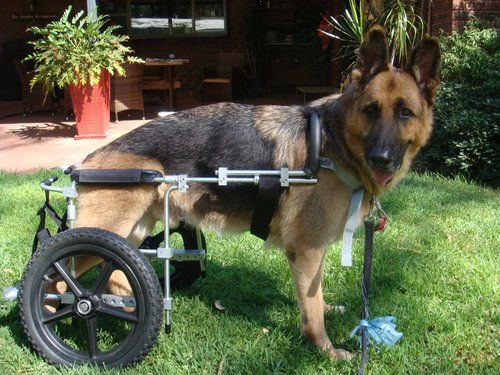Degenerative Myelopathy in Dogs
Overview
Degenerative myelopathy is a non-reversible, progressive disease of the spinal cord that occurs primarily in older dogs. The disease has an initial onset typically between 8 and 14 years of age.
Symptoms
The symptoms for degenerative myelopathy begins with a loss of coordination (ataxia) in the hind limbs and difficulty walking, running and otherwise moving. Here are some other symptoms to keep an eye on.
- Increased muscle atrophy
- Loss of muscle mass
- Inability to maintain posture
- Limb paralysis
- Loss of the ability to control defecation and urination
- Exaggerated spinal reflexes
Breeds Commonly Affected
Although degenerative spinal myelopathy can affect any dog, some purebreds are more susceptible to the disease (this is not an exhaustive list).
- German Shepherds
- Pembroke Welsh Corgis
- Chesapeake Bay Retrievers
- Boxers
- Collies
- Rhodesian Ridgebacks
- Poodles
Treatment
Unfortunately there is no known treatment for degenerative myelopathy, however exercise is recommended to maintain the dog’s ability to walk. In some cases your dog may need spinal support in order to live a more manageable life.
Other Potential Spine Issues in Dogs
Here is a list of common disc diseases in dog that you should be aware of.
- Spine and Back Problems in Dogs
- Degenerative Spinal Stenosis
- Discospondylitis
- Hemivertebrae
- Hypoplasia of Dens
- Intervertebral Disc Disease
- Lumbosacral Syndrome
- Osteoarthritis
- Spondylosis Deformas
- Wobbler Syndrome
Related Content




















